|
|
|
|
Haere mai, hoki mai rā — welcome back to your New Zealand newsletter.
With mere days until election day, is there anything left to say? Most definitely, yes — and I don’t just mean by the politicians themselves. Our two profiles of Jacinda Ardern and Judith Collins place
both party leaders in the context of their careers and these unusual times to explain what motivates them, and perhaps what voters see in them, too.
Elsewhere, we examine the rise of ACT during this election, something that will have major implications for the shape and style of the next parliament. And the sad reality of our child poverty statistics being predicted to climb due to COVID-19 is a reminder that beyond the hustle and hype of the campaign, huge challenges await the next government.
You’ll find much more to read here and on our homepage. And on Sunday we’ll be sending you a special newsletter with expert analysis and coverage of the election result. Remember, if you have a friend or family member who might be interested in receiving this special newsletter too, ask them to sign up using this link.
Till after the election, then, ngā mihi nui ki a koutou katoa.
|
Finlay Macdonald
New Zealand Editor: Politics, Business + Arts
|

|
|
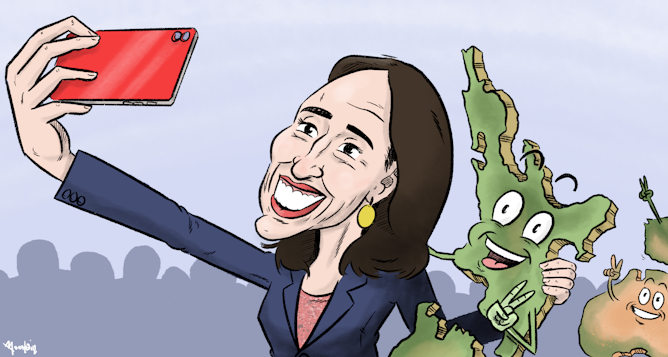
Wes Mountain/The Conversation
Richard Shaw, Massey University
The politics of reassurance have made her one of the most popular prime ministers in NZ history. Can Jacinda Ardern turn that into meaningful change?
|
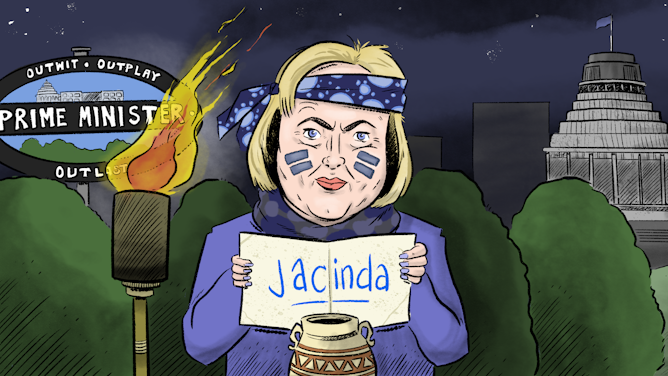
Wes Mountain/The Conversation
Jennifer Curtin
For Judith Collins, centrism is an excuse to do nothing and stand for nothing. This election is the greatest challenge yet for her brand of politics.
|
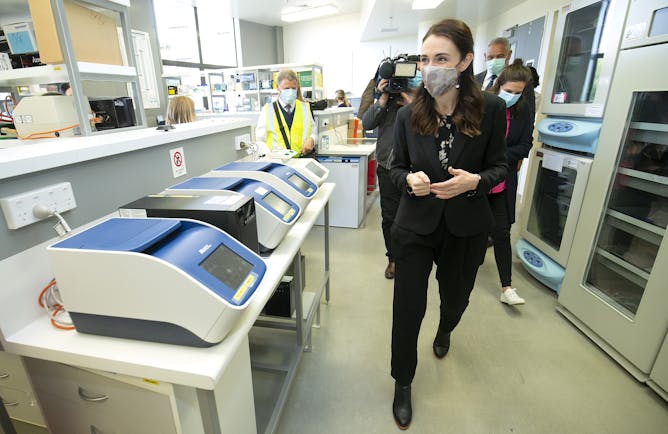
Hagen Hopkins/Getty Images
Jessica C Lai, Te Herenga Waka — Victoria University of Wellington
New Zealand has entered several international agreements to access COVID-19 vaccines, but it should also amend domestic patent law and regulatory processes to prevent delays and costly negotiations.
|
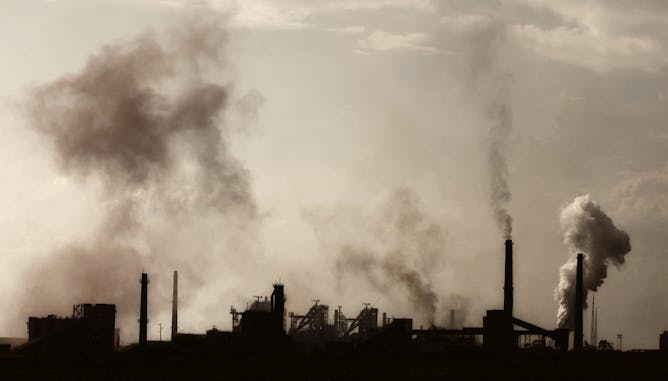
Shutterstock,Valentina Petrov
Chris Turney, UNSW
The coronavirus pandemic caused the UN's annual climate conference to be postponed by a year, but it was also responsible for a drop in carbon emissions. Is it enough and will it last?
|
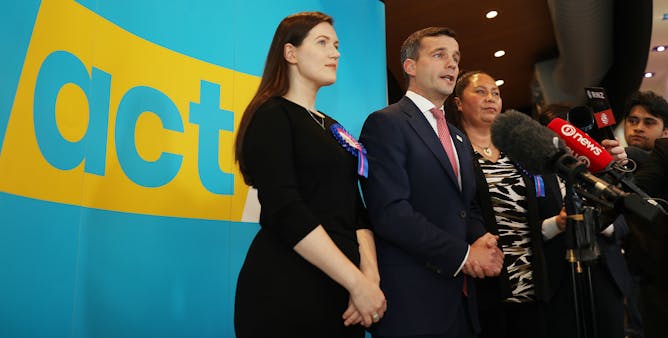
ACT deputy leader Brooke van Velden, leader David Seymour and candidate Nicole McKee at the party’s campaign launch in July.
GettyImages
Grant Duncan, Massey University
Climbing in the polls and less inclined to be National's political lapdog, is the ACT Party more or less than the sum of its parts?
|
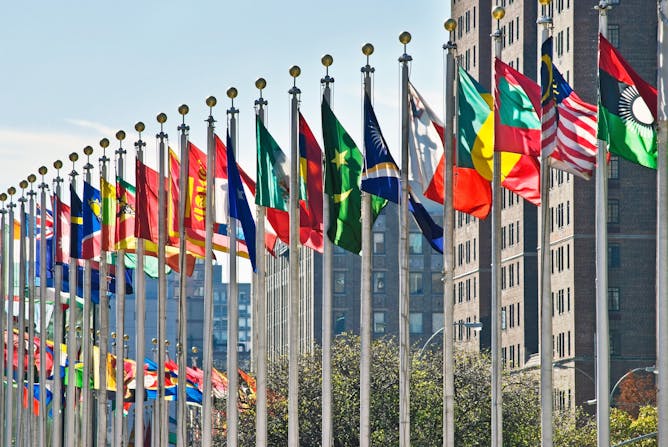
www.shutterstock.com
Alexander Gillespie, University of Waikato
COVID-19 has all but wiped foreign policy from the election debate, but a world still in crisis awaits the winner of the general election.
|
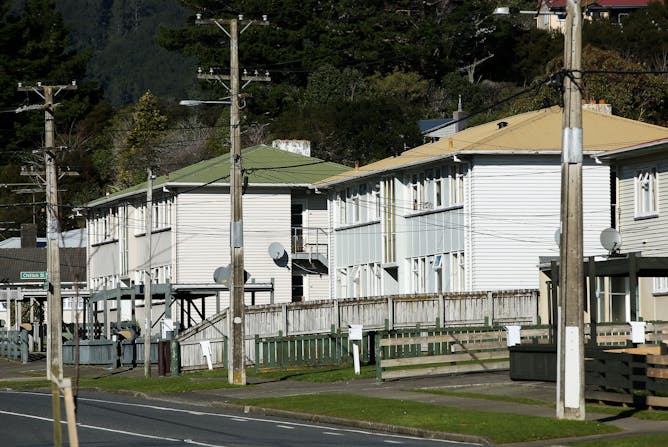
GettyImages
Kate C. Prickett, Te Herenga Waka — Victoria University of Wellington
Emergency welfare relief during the pandemic shows 'transformational' child poverty action is politically and economically possible.
|
From our international editions
|
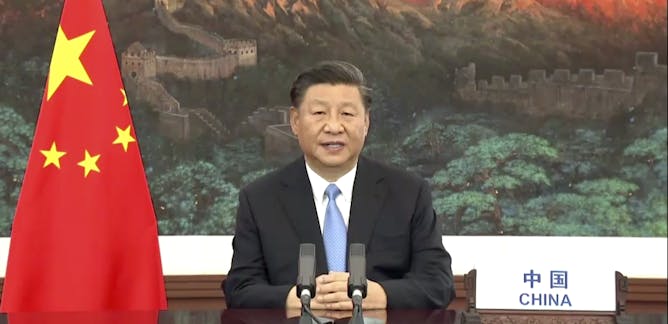
Kai He, Griffith University
A recent survey by the Pew Research Centre shows negative views toward China have reached their highest levels in nine countries since polling began over a decade ago.
| |
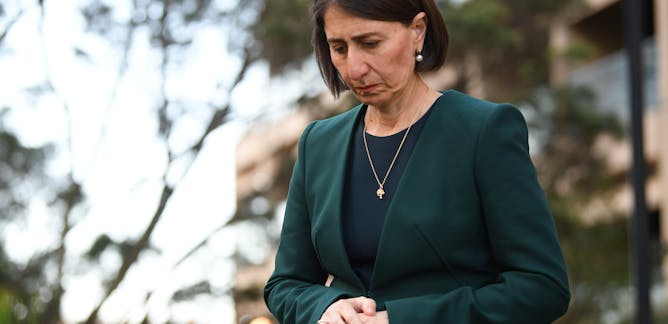
Michelle Grattan, University of Canberra
NSW Premier Gladys Berejiklian has admitted having a relationship with former MP Daryl Maguire, which she only ended recently, despite his being forced to quit state parliament in 2018.
|

Peter Tuthill, University of Sydney
Surprising findings on an exquisite and huge star system in our Milky Way suggest future potential for an extremely rare gamma-ray burst. This event has never been observed in our galaxy.
| |
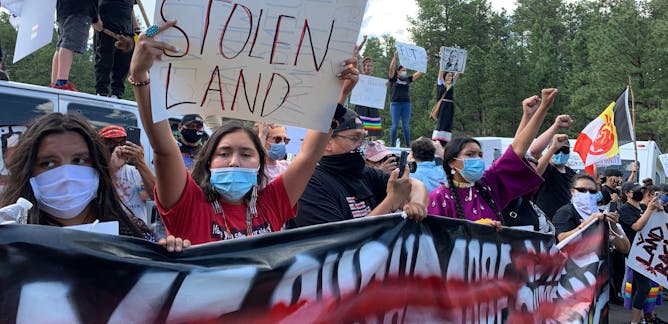
Abel R. Gomez, Syracuse University
Renaming a national holiday to celebrate Native culture is one thing, but many Indigenous peoples are looking for greater recognition of the land grab that deprived them of ancestral homes.
|
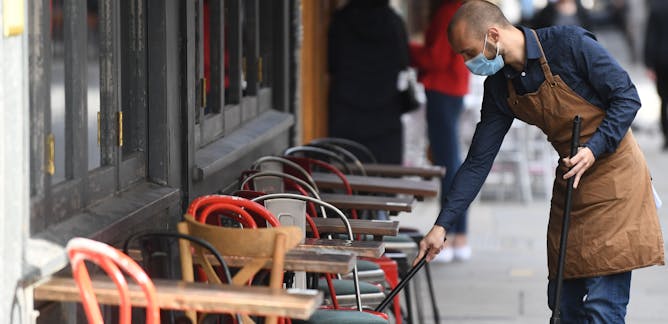
Renaud Foucart, Lancaster University
The UK government is set to introduce a three-tier system of lockdowns.
| |
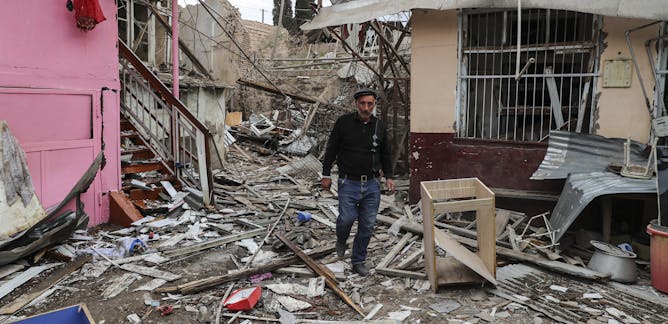
Kristin M Bakke, UCL; Gerard Toal, Virginia Tech; John O’Loughlin, University of Colorado Boulder
Armenia and Azerbaijan are fighting over the contested territory of Nagorno-Karabakh. But what do the people who live there want?
|
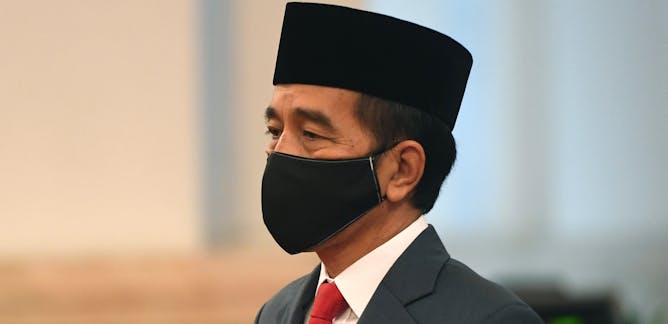
Yohanes Sulaiman, Universitas Jendral Achmad Yani
The government's decision not to delay the elections is driven mostly by economic reasons, though political factors also come into play.
| |
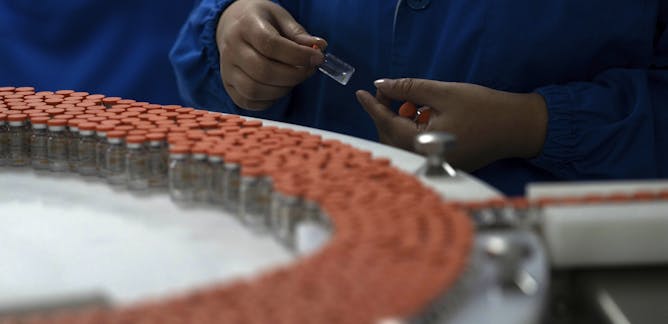
Byram W. Bridle, University of Guelph; Samira Mubareka, University of Toronto; Shayan Sharif, University of Guelph
Our first exposure to a pathogen, either naturally or via vaccination, can affect how our immune system responds in the future to the same or similar pathogens.
|
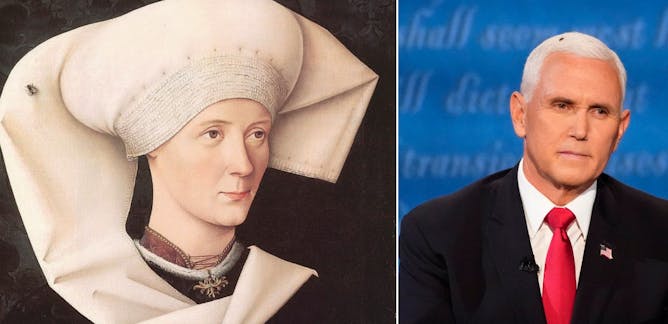
Sally Hickson, University of Guelph
Flies have long held symbolic meaning in the history of art. In portraits made in Renaissance Europe, the presence of a fly symbolizes the transience of human life.
| |
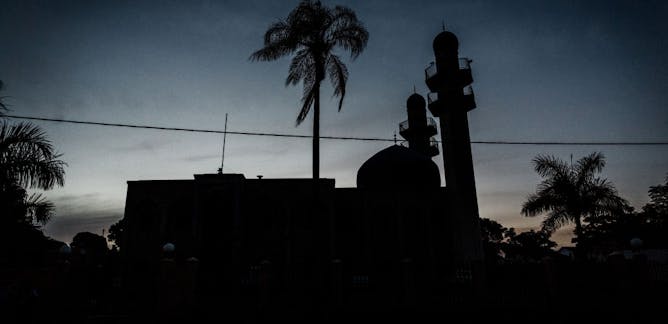
Helena van Coller, Rhodes University
South African neighbour law also requires property owners to tolerate a degree of nuisance from their neighbours.
|
|
|
| |
| |
| |
| |
| |
| |
|
|
|
|
|
|
|